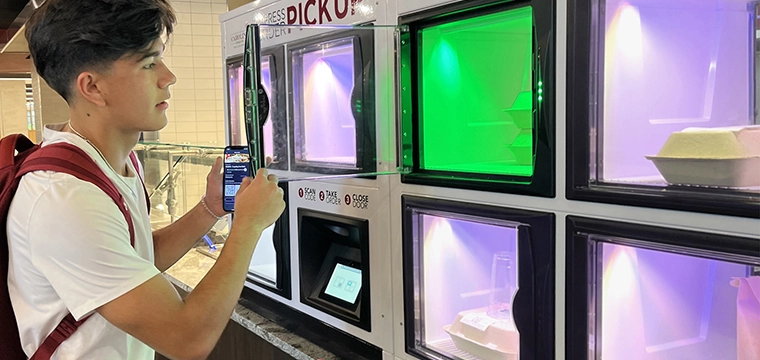Oakland University's housing department is mulling changes to its meal plan structure that would eliminate transfer meals that are seeing students eating at retail dining locations on campus rather than visit the university's dining hall.
According to a report from The Oakland Post, Oakland's Residence Hall Association hosted two town hall meetings where students and representatives of food-service vendor Chartwells discussed the proposed changes. The existing meal plans at Oakland features meal swipes that can be used at an on-campus dining hall, transfer meals that can be used in a campus food court, and declining points that act as the dining dollar component of the student meal plan.
The existing plans offered:
Regardless of the chosen meal plan, all students have seven transfer meals per week, which they can use at retail locations on campus including Panda Express, Chick-Fil-A, Moe’s Southwest Grill, Subway, and more. Declining points can also be used to purchase meals from these retail locations.
It's the transfer meals, however, that have seen an increasing number of meals being taken away from the campus dining hall, as well as overcrowding the food court that houses the retail locations. In the newly proposed dining system, transfer meals would be removed altogether, instead introducing significant increases in the amount of declining balance points (dining dollars):
The proposed changes essentially increase the number of meal equivalencies available to students across all three meal plan options. In addition to providing more meal equivalencies, Oakland University Housing also stated that part of the reason for the proposed changes is to cut down on traffic in the food court -- which houses the retail food chains -- and bring some of that traffic back to the campus dining hall. The overcrowding at the food court comes, in part, because it's the only location where transfer meals are accepted.
Also core to the discussion were concerns over students' potential over-reliance on the food court and its retail fare, rather than utilizing the on-campus dining hall. In the past, the university had set a maximum of three transfer meals per week, and students only used an average of 1.5 of those transfers per week for retail dining. But with the transition to seven transfers per week, the average use rose to roughly three transfer meals per week -- raising the issue of budgeting and the importance of properly spacing out meal plan spending and usage.




